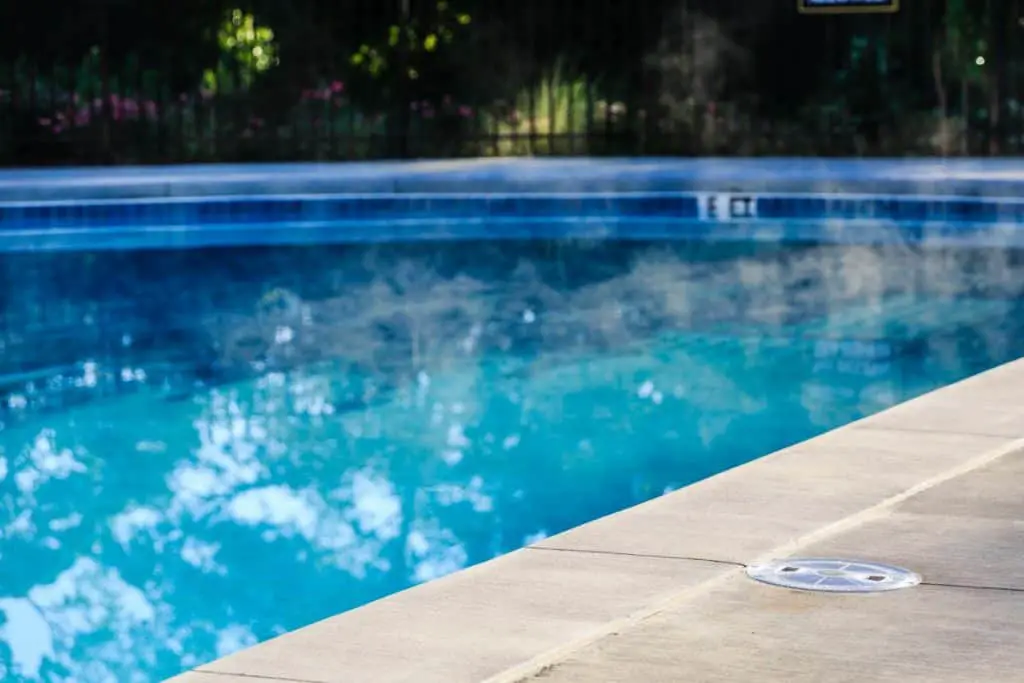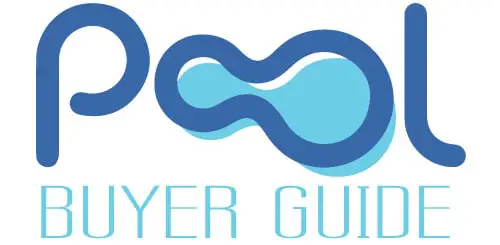
If you’re planning on using your pool in the cooler months, you might be in for a surprise when the bill comes due. Pool heaters are great for keeping the pool water comfortable and can extend the use out of your swimming pool, but pool heaters can be very expensive to run.
So, how much much does it cost to heat a pool? The average cost is between $200 to $400 a month depending on the water temperate you have set. This is if you run your pool heater from May through September. This can vary on whether you have a propane pool heater, natural gas pool heater or a heat pump.
What’s the Cost to Run A Pool Heater?
Below are a few options that will be available to you and their individual costs.
Propane Pool Heaters
For a 100,000 BTU’s propane heater uses an average of 1 gallon per hour. For a typical 400,000 BTU pool heater, that’s roughly 4 gallons per hour. According to the National Average Cost of Propane, propane runs about $2.20 per gallon. So with our example, 1 hour on propane will cost roughly $9.00.
Natural Gas Pool Heaters
It is going to be about 1 therm per hour per 100,000 BTU’s for Natural Gas. For a typical 400,000 BTU pool gas heater, that’s 4 therms per hour. According to the Cost of Natural Gas Per State, Natural Gas runs about $1.00 per therm. So with our example, 1 hour on Natural Gas will cost roughly $4.00.
Heat Pumps
It is going to be about 5,000 watts or 5 kilowatts per hour per 100,000 BTU’s for a heat pump. For a typical 100,000 BTU heat pump, that’s 5 kilowatts per hour. According to the Electricity Cost for All 50 States, the natural average for Electricity runs $.13 cents per kilowatts hour. So with our example, 1 hour on a heat pump will cost roughly .60 cents.
What is the Cheapest Way to Heat a Pool?
One of the cheapest ways to heat your pool is by using solar. One of the best ways to heat your pool up is using a solar pool cover (also known as a solar blanket) which traps the heat from the sun, thus heating up the pool. One of the best things about solar pool covers is they are relatively cheap and require no ongoing costs. One of the major downsides is the time that it can take to be heated up on a cloudy day versus turning on a knob on a conventional pool heater.
The next cheapest way to heat your pool up is through a solar heater. The cost to run a solar heater is essentially free, besides from occasional maintenance. One of the biggest downsides with a solar heater is the upfront cost and the cost of installation can cost more than a traditional pool heater.
How Much Does it Cost to Heat an Indoor Pool?
Indoor pools require a heating system year-around, unlike outdoor pools can rely most on the sun for heating. Many experts recommend to keep your pool water set at 78 degrees Fahrenheit if you are a lap swimmer and 82 degrees Fahrenheit if you are using it for recreational use. For every degree that your turn up your temperature, you are potentially increasing your heating costs by 10%.
It’s hard to say how much it will cost to heat an indoor pool due to the vast ranges of temperature. Some people will like to have their pools above 80 degrees Fahrenheit and some other people will have their pools set at 60 degrees Fahrenheit to save money. It’s highly recommended that you keep your indoor pool room temperature two to four degrees warmer than you keep the water temperature. The reason they recommend this is to help with evaporation, which can lead to you having to refill your pool less often.

